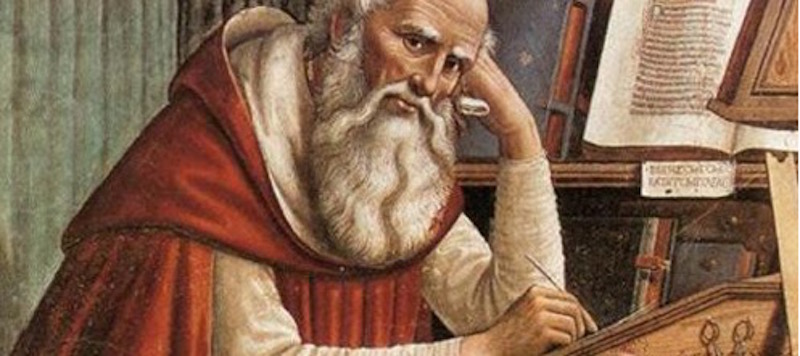Blood, Money, and Augustine
Tom Sturch
 We're proof seekers. And for the last couple hundred years we're in pursuit of it as evidentialists with calculators, and scientism is the belief we want to justify. But here's an anecdote that suggests the corporately-funded feast might be nearing it just desserts. Mount Sinai's School of Medicine is accepting humanities majors from a handful of top-flight liberal arts schools after their second year of college. Yep. You heard me. Med school without the MCAT, guaranteed entry after two years of liberal arts studies. If absurdity marks the end of an age, prepare to take cover. Is this the harbinger of another Renaissance or the end of modern culture? The answer to that might be in how much money and blood you just sank into your pre-med degree. Statistically, though, it's a few million occurrences short of a trend. More proof will surely come as future doctors prescribe books instead of Z-Paks.
We're proof seekers. And for the last couple hundred years we're in pursuit of it as evidentialists with calculators, and scientism is the belief we want to justify. But here's an anecdote that suggests the corporately-funded feast might be nearing it just desserts. Mount Sinai's School of Medicine is accepting humanities majors from a handful of top-flight liberal arts schools after their second year of college. Yep. You heard me. Med school without the MCAT, guaranteed entry after two years of liberal arts studies. If absurdity marks the end of an age, prepare to take cover. Is this the harbinger of another Renaissance or the end of modern culture? The answer to that might be in how much money and blood you just sank into your pre-med degree. Statistically, though, it's a few million occurrences short of a trend. More proof will surely come as future doctors prescribe books instead of Z-Paks.
The Romans didn't see their end coming. Ends of things take a while to get going, and histories don't get written until a lot of people with skin in the game kick off. Augustine was born to people with skin in the game—people of Roman blood and money, with connections and influence. Even so, his sainted mother was a Christian and pursued Augustine's heart with her feet, following his travels, and her faithful prayer. And just years after he was appointed to a highly visible post as a rhetoric professor that would launch a political career, his will was transformed and, then studying with Ambrose in Milan, he was convinced of Christianity.
Augustine's forty years of work in Hippo Regius preceded the Middle Ages by about a hundred years but carved out for the generations a substantial intellectual heritage for Christianity's most holy tenets and defended her in the battles against Manicheism, Donatism, and Arianism.
Interestingly, his greatest work The Confessions, is at once a failure and in its failure, made essential. As inspiring and quotable as it is, it is also consistent with his Neo-Platonist education. Unlike today, the liberal arts were studied in adulthood or nearer the end of one's life than the beginning. It was undertaken to project one's thoughts toward the heavens and beyond in preparation for the next life. So these things were on Augustine's mind as he laid them out to God as an idealist's assent, or, as salvation by intellect alone. But the years of conflict and writing that followed became a convincing proof that cost him much. God saw Augustine put humble flesh and long labor on the honors of his youth. Enough so that in the end, even his enemies honored him.
As the Vandals laid siege to Hippo, Augustine lay there dying in the care of doctors. When he died, they razed all of Hippo except for his church and library. The city of the man who wrote The City of God was gone. Was it the end, or a new beginning (as we like to count things), or was it something more transcendent?